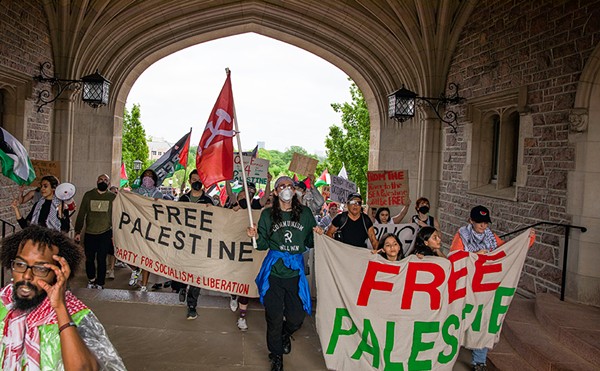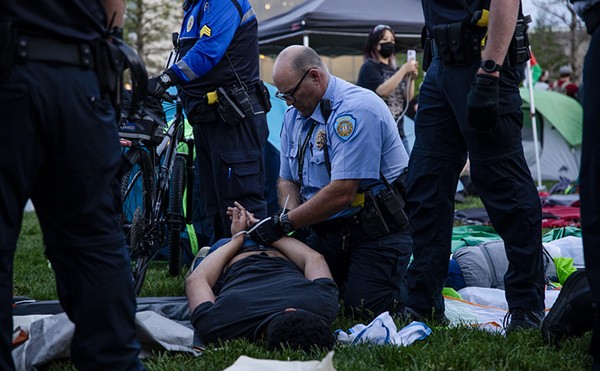The developer can't pull off his grand vision, they claim, because he doesn't have enough private financial backing.
Here's a brief walk-through of their argument.
1) McKee estimates the first phase of his project will cost about $3.6 billion (click here then scroll to p.32 of the doc).
2) He's won tentative approval of about $200 million in TIF subsidies from the city for this first phase, according to an e-mail from city attorney Patti Hageman.
3) That leaves $3.4 billion yet to be covered.
4) The only private lender to sign on publicly is the Bank of Washington, in Franklin County. But, claims attorney D.B. Amon, its letter of support never lists any dollar amount. It just says bank officials are "excited" to help. (Click here for the letter).
5) What's more, the Bank of Washington holds assets of about $744 million, according to its website. That entire sum wouldn't even cover half of the remaining cost (as Wash U. economist Michele Boldrin pointed out in court earlier this week).
Now, McKee's attorney Paul Puricelli has rebutted all this. In a December 7 court filing, he wrote that:
- "The Bank of Washington letter is only one component of the financing package..."
- "The redeveloper has already financed the purchase of 859 parcels of property within the redevelopment area" and "committed approximately $40 milllion of his own funds...inclusive of the acquisition costs, project analyses and studies." This all constitutes an "extraordinary commitment."
- "[McKee] is obligated to engage co-developers to develop at least 25 percent fo the project.
- The City doesn't "look for or expect a firm financing commitment from private lenders at this stage of a regional TIF project. To the contrary, it is expected that some progress...will be necessary to attract financing."
38 separate streams of federal stimulus funds that might be tapped for more than 100 components of their plan -- from highway money to public housing grants to an array of green energy awards."Time will tell whether that any of that money flows toward St. Louis at all.
These are the issues that will surely be revisited at the next trial date (this Thursday). Stay tuned.






